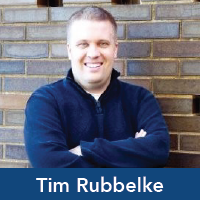I like to joke that I’ve been on “all sides of the research endeavor.” I’ve done bench science, social science, and research administration. I cut my teeth in a biochemistry lab running a mouse colony and being the lab’s main point of contact for the IACUC. I later left science and went to graduate school to study research ethics.
During this time, I spent part of my graduate assistantship researching environmental contributions to research misconduct. For the remainder of my assistantship, I split my time between the IRB and the very same IACUC I previously would complain about while trying to keep my mouse experiments running. I also assisted in teaching research ethics classes to both clinical investigators and biostats students.
After graduating, I went to work in the Conflict of Interest (COI) office at Washington University in St. Louis. It couldn’t be a more interesting time to be working in the COI field. While COI doesn’t always generate the same excitement and discussion as animal or human subjects research ethics, it’s a unique area that touches all aspects of the research enterprise from basic bench science to clinical trials. I have a bird’s eye view of a large research university’s entire research administration program.
Our office impacts everything including safeguarding the integrity of bench science, the protection of human subjects, even safeguarding the university’s reputation and the public perception of science as a whole. With increasing focus on “foreign influence” and the role of industry funding, COI programs are becoming ever more essential elements of a good Responsible Conduct of Research program. At a time when public trust in science seems under assault from all directions, it’s increasingly essential that we protect that trust from any harm.
While I’ve been involved in research ethics in various capacities over the years, this will be my first chance to attend (albeit virtually) PRIM&R’s Advancing Ethical Research Conference, and I couldn’t be more excited to have the chance to write about it as part of the Blog Squad.
I look forward to bringing my unique background to my Ampersand posts, providing a viewpoint on how responsible conduct of research programs—be they training, IRBs, or conflict of interest—can help protect public trust in the scientific enterprise.
 Tim Rubbelke, PhD, is the Senior Research Compliance Specialist in the Research Conflicts of Interest program at Washington University in St. Louis. He assists the Conflict of Interest Review Committee in the assessment and management of complex cases of financial conflicts of interest, including those related to startups commercializing university-owned IP. Tim has a PhD in Health Care Ethics from St. Louis University, focusing on both human subjects and animal research ethics.
Tim Rubbelke, PhD, is the Senior Research Compliance Specialist in the Research Conflicts of Interest program at Washington University in St. Louis. He assists the Conflict of Interest Review Committee in the assessment and management of complex cases of financial conflicts of interest, including those related to startups commercializing university-owned IP. Tim has a PhD in Health Care Ethics from St. Louis University, focusing on both human subjects and animal research ethics.


No comments! Be the first commenter?